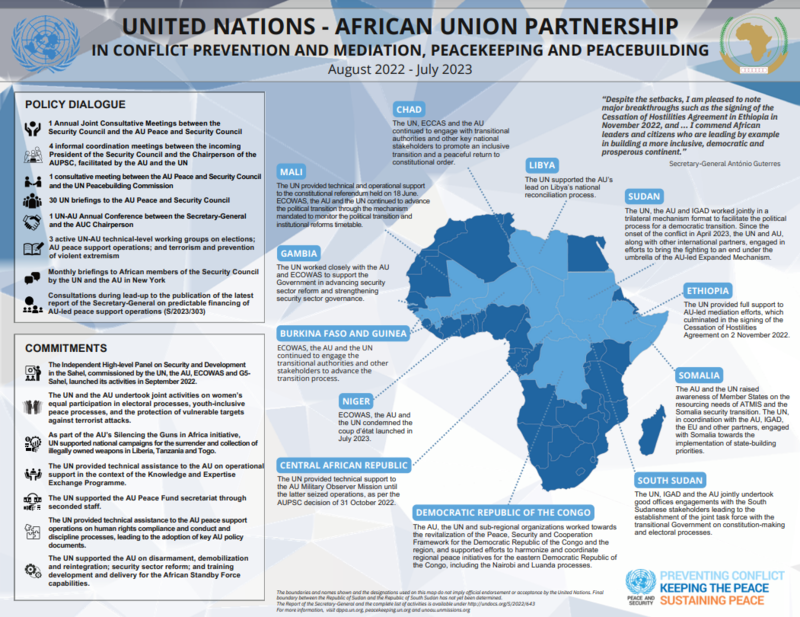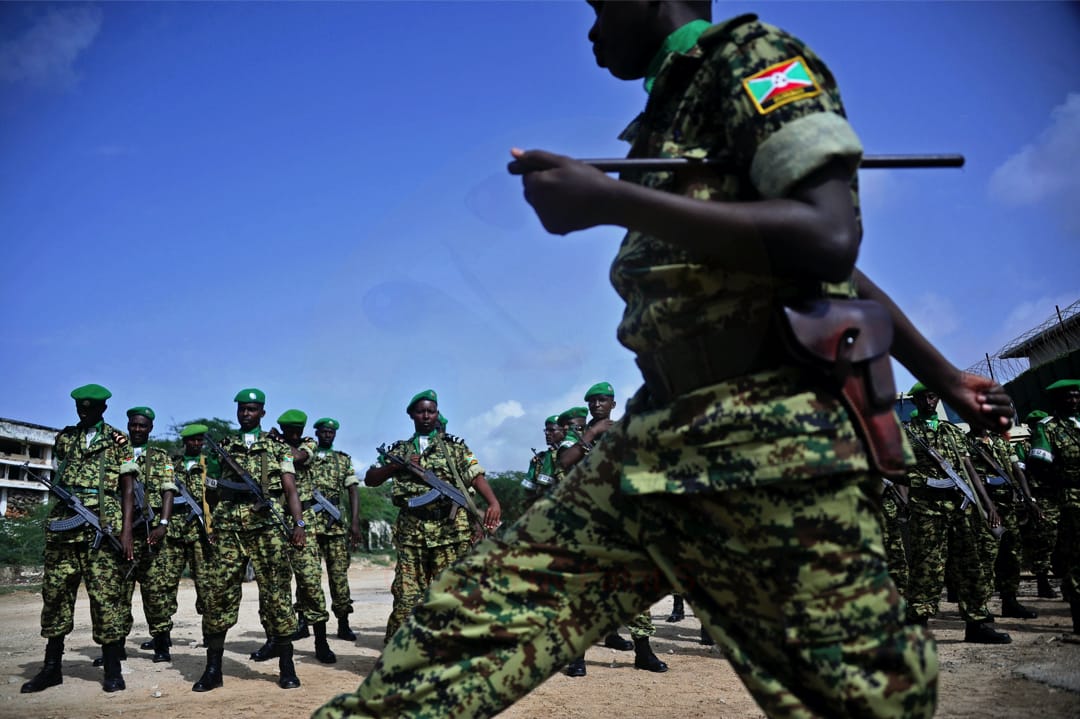The first reason to why Europe needs to maintain its engagement with Africa is because it is inevitable. The demographic increase in the coming 30 years predicts that 1 in 4 people will be African. The population on the continent is set to almost double, from 1,4 to 2,4 billion before 2050. Out of that population, 50% will be under 25 years old. It does not really matter how many border controls that the EU sets up, or how much Europe looks to the East. Africa is too big, too important and too close, both geographically and culturally, to ignore.
The second reason is economic. Africa hosts 30% of all the critical resources that is needed to power our modern world and Europe can not stand on the side of competitors like China and Russia when it comes to getting access to these resources. Europe needs to get engaged and establish fair trade deals. The fairness of those deals is what will set it apart from other competitors, and which will benefit the African populations, not just the leaders.

The third reason is diplomatic and is related to Africa’s weight in multilteral institutions. Africa holds 3 non-permanent seats on the UN Security Council and it represents one of the largest regional voting groups (28 percent). This is not new, but the weight of those votes has increased as the Global Power competition intensified. Now, we might say that currently, the UN is a toothless and paralyzed organization because multilateralism is in crisis, but if we want multilateralism to increase in importance – and we do – then those votes are valuable.
Finally, engaging with Africa is important for Europe because we are in the midst of a Global Power Competition and even if the core of that competition is right now playing out in Ukraine, we shouldn’t lose sight of the periphery because in a competition, it is the incremental gains and losses over secondary interests that over time undermine and secure vital interests.
Europe losing leverage
Yet, at the moment Europe is losing leverage in Africa. Three reasons stand out as particularly important. First, the recent coup wave has accelerated a decade-long democratic decline on the African continent and put in place new, authoritarian actors and unreliable partners. The coup leaders are unreliable as they did not only bypass constitutional rules to get into power, they also discard human rights and democratic values to stay in power and, as we have seen in the Sahel, they rapidly shift security partners. Europe is already maintaining relations and collaboration with authoritarian states elsewhere, including in sub-Saharan Africa, so it is not the authoritarian aspect of the Sahel states per se that pose the problem, but the public rejection of European security partners – in this case France – and the decision to turn to Russia in the midst of a global power competition, which disturb relations.
Africa’s coups have also provoked an identity crisis for the EU and its member states about what approach to take with these new actors – whether to stay true to the values we preach or the interests that we need. So far, it seems as we have not found a middle way. This crisis has divided the member states about what strategy to pursue in Africa which has severely undermined EU’s weight and influence as a global actor. When first France and more recently the US were kicked out of Niger following the coup in July 2023, Germany and Italy sent delegations only days later to negotiate security collaboration with the junta. While this is certainly a way for (parts of) Europe to stay engaged in the Sahel, it is also a public disintegration of the EU’s perceived cohesion and as such a loss of EU’s influence as an actor.

Finally, Europe’s (perceived) double standards is reducing its influence and credibility on the African continent. It does not really matter that the continent hosts more undemocratic than democratic governments, and that regime maintenance and corruption are core values for many of the new authoritarian leaders, Europe’s extensive support to Ukraine has been, and is perceived as deeply unjust for many African states, who feel that human lives in Soudan’s war, in the East of DRC or again in Somalia, are valued less than lives in Ukraine. And this is without going into the increasingly difficult acceptance of Israel’s attacks in Gaza.
On a regional level, the EU’s continued support to Chad – a state which also recently experienced a coup and organised rigged elections to keep the military regime in place – while it has suspended security collaboration with Mali and Niger is also perceived as a sign of hypocrisy. Just as providing European Peace Facility (EPF) funds to Rwanda for its deployment to Mozambique while it is simultaneously supporting rebel incursion into the East of the DRC is hard to swallow for not just the DRC but other states in the region too. As Europe, contrary to Russia or China, wears its values on a sleeve, the cost of perceived hypocrisy is very real.
Choosing Direction in an Age of Amorality and Impunity
In the second half of 2024, the EU is set to develop a new approach to Africa. It will need to reflect on a few issues when it does so.
First it needs to redefine its main objectives when dealing with Africa as a continent and with individual partner states. The EU is renowned for pulling out bible thick strategies that surely represent compromises between member states but rarely provide a clear answer to what the core priorities are when engaging with African partner states, whether that is to fight jihadists, build democracy or access natural resources. Clarifying that, if only for the sake of internal collaboration between member states is necessary.
A second point is that Europe cannot adopt an all-or-nothing approach to partnerships with African states. Firstly, because we do not do that with other states on other continents and secondly, because if we do, then we can only deal with a very small minority of states on the continent. That means that Europe will have to do trade-offs between bad and worse choices. And to do that we will have to first be honest about the fact that we do tradeoffs and second avoid the delusion of false alternatives.
Providing lethal equipment to coup regimes in the Sahel will not allow us to decide the conditions on which the fight against jihadist will take place, or let us choose their security partners. Yet, nor will suspending all collaboration with these states result in the decline of these regimes and the emergence democracies built from the bottom-up. We must evaluate choices, and partners, against the plausible possibilities, not against utopian ideals.
This does not mean that we need to adopt a pure end-justifies-the means mentality when it comes to security collaborations with African states. Such an approach would go against our own values and interests and ultimatealy undermine our greatest strength: our belief in democracy, human rights and accountability. Instead we will need to deal smartly with unreliable partners and offer packages which combine hard realpolitik with an appropriate dose of our own values.
Giving lethal equipment to armies that we know massacre their own populations is a strategic error as it will erode our own population’s support for the values that we have built our identities around. Yet, there is a wide spectrum of different types of security collaborations which we can choose from. As hard as it might be right now, we might have to maintain acceptable security collaboration when and were we can with actors which we normally do not accept, to avoid greater harm and support the populations under these regimes. Yet, we should also make sure to increase and reward our reliable partners to show that there is a spectre of different degrees of collaboration, and that reliability, loyalty and values are rewarded.
Drawing from the wide spectrum of security collaborations while holding ambitions for what we actually can achieve at a realistic level and appreciating marginal improvements, may be the best way forward. Providing combat casualty care courses to Sahelien security forces may for example be an acceptable level of collaboration which does not directly influence combat capacity or involve lethal equipment, while increasing security collaboration with more like-minded states like Benin and Ghana could be a way to build more sustainable relationships while demonstrating the range of different options available for cooperation.
So to conclude, the EU as an actor needs to decide where it wants to go, with whom and to do what with its African partners, just as EU member states need to reflect on whether their choices increase or decrease the EU’s weight as an international actor in a global power competition.
By Nina Wilén
(Photo credit: Nina Wilén)



 A Global Power Competition drives different trends, two of which affect not only relations between global powers, but which colour current international relations more broadly:
A Global Power Competition drives different trends, two of which affect not only relations between global powers, but which colour current international relations more broadly: